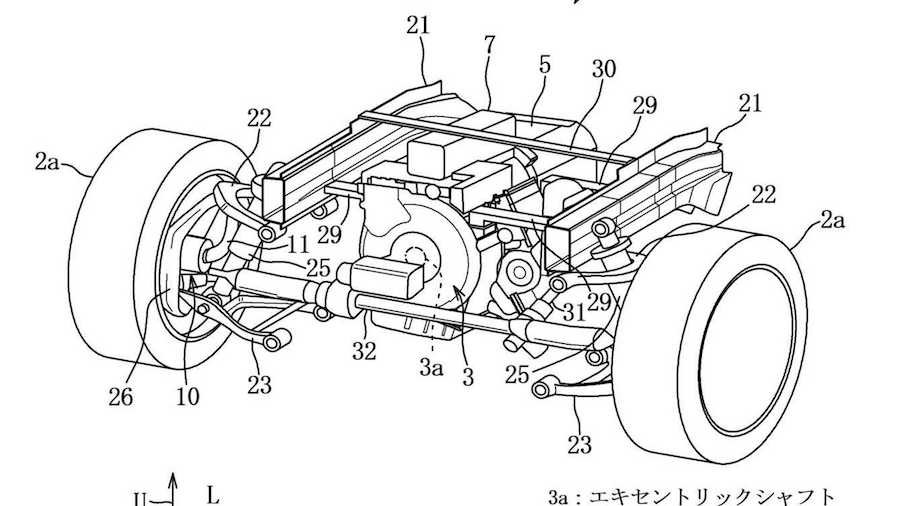Mazda Patent Packs Rotary Engine Into High-Tech, AWD Hybrid Powertrain

Mazda has a newly published patent in Japan that could point to a return for the brand's rotary engine. The paperwork describes a powertrain with a front-mounted combustion engine with the help of an electric motor turning the rear wheels. The front would have an electric motor in each wheel with a capacitor system powering them. The result is an electric all-wheel drive vehicle that Mazda believes could have weight savings over other existing methods of achieving this layout.
The tech that Mazda describes uses a relatively small 3.5-kilowatt-hour lithium-ion battery operating at 48 volts. It can get away with this tiny capacity because of the capacitor system that is underneath the hood with the combustion engine. The system charges using regenerative braking, when the voltage between terminals of the capacitor reaches a certain level then the charge goes to the battery. Alternatively, if the driver needs the acceleration, and the capacitor doesn't have enough energy to power the in-wheel motors, then the battery can supply the charge.
As Mazda's patent explains it, the weight savings also come from the capacitor being lighter than a battery for powering the in-wheel motors. Plus, The high-voltage wiring only needs to run from the motors in the front wheels to the capacitor that's underneath the hood. Keeping these components closer together means less wiring and therefore lower weight.
When setting off and during low-speed driving, the combustion engine and its electric motor drive the rear wheels. The in-wheel motors "generate an output only when a large output is required in the high vehicle speed range," according to the patent.
It's worth noting that the patent document describes ways of achieving this layout with rotary, inline, or V-configuration engines. However, the paperwork notes that the rotary is particularly useful for this system because of its compact dimensions.
If the rotary doesn't come back in the way this patent describes, the motoring world might still see the Wankel's return. The automaker is investigating using the engine as a small range extender for its MX-30 electric crossover.
